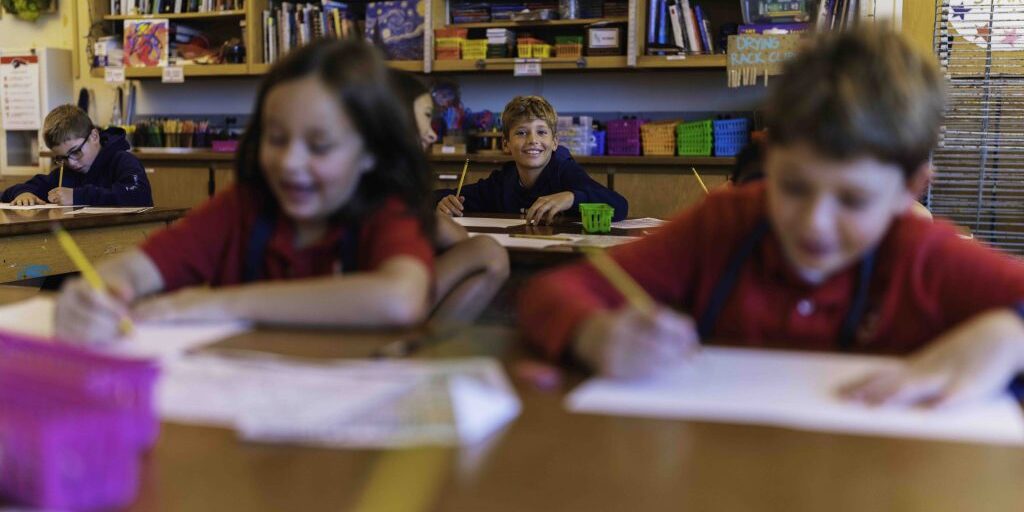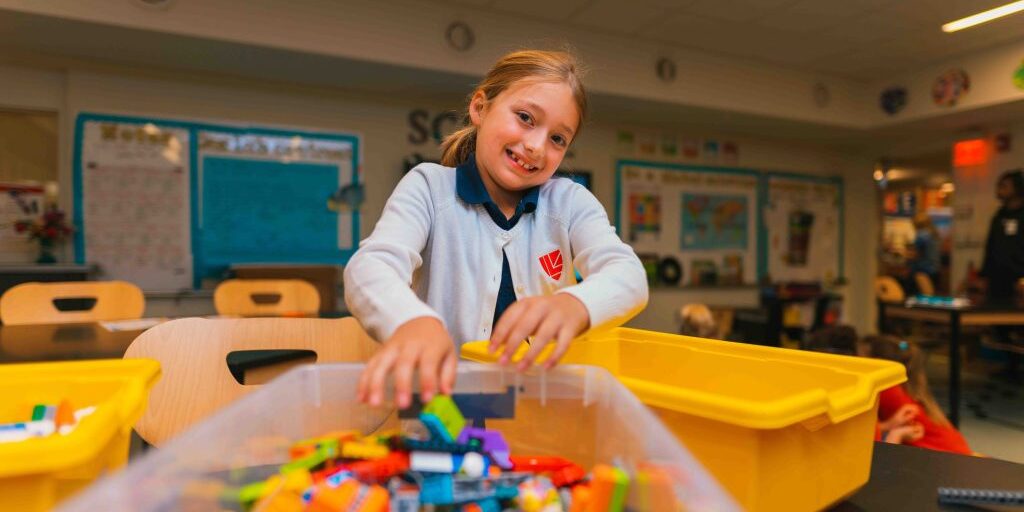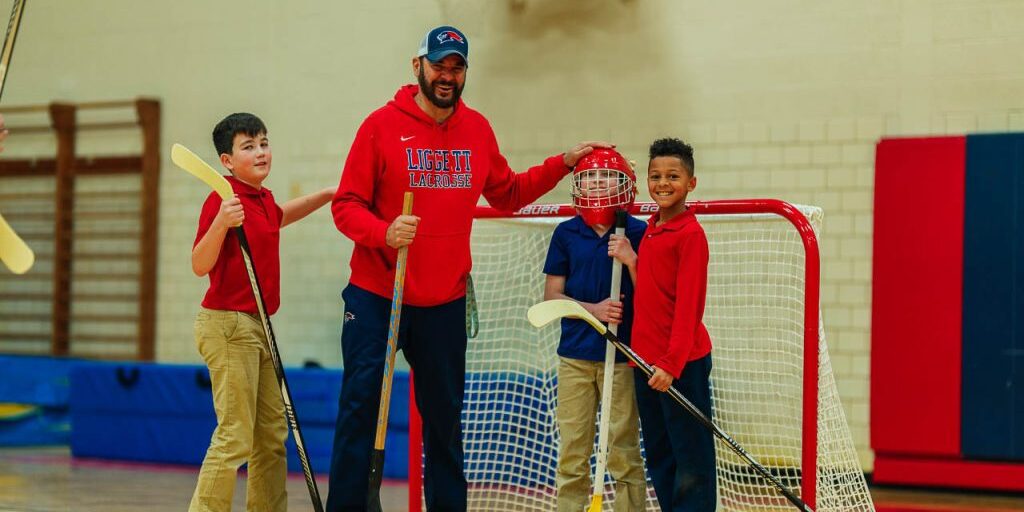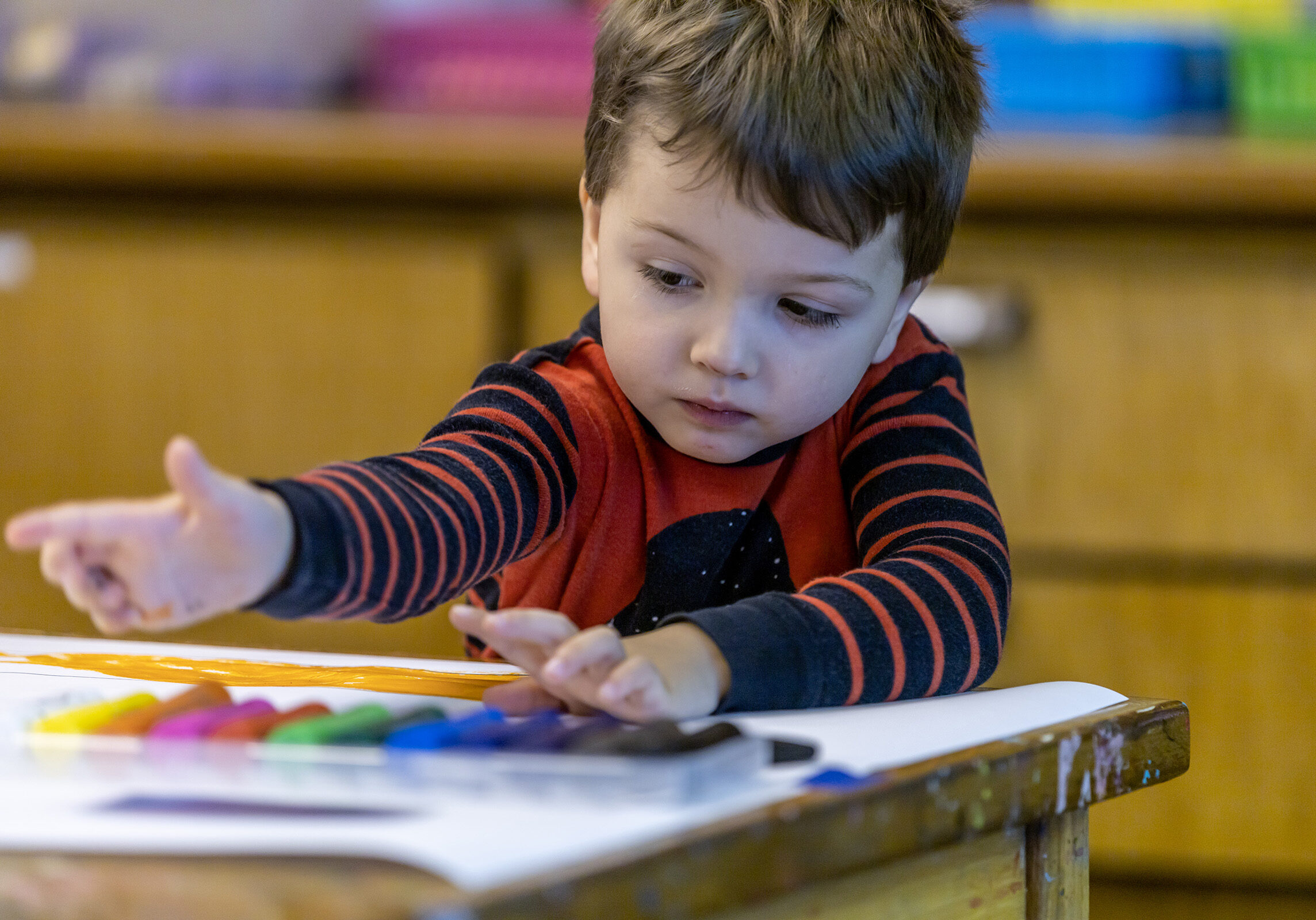
UNIVERSITY LIGGETT SCHOOL \ ACADEMICS
\ ACADEMICS
More to Explore @ Lower School

Literacy
We utilize the Daily 5 and CAFE methods to provide extended periods of time to practice, combined with focused, intentional instruction, to help increase student reading achievement.
Daily 5 is the structured framework we use to practice authentic reading and writing during our literacy block.
Daily 5 consists of:
- Read to Self
- Read to Someone
- Listen to Reading
- Work on Writing
- Word Work
CAFE is a system of goal setting which organizes the key components of successful reading strategies and helps students maximize understanding.
- Comprehension
- Accuracy
- Fluency
- Expand Vocabulary

Numeracy
The Math in Focus approach (Singapore Math) ensures every student’s ability to master concepts and apply mathematics. The program emphasizes concept mastery, a concrete-to-pictorial-to-abstract approach, metacognitive reasoning, and the use of model drawing to solve and justify problems. The principles underlying the program are drawn from a solid base of foundational research that has identified effective approaches to mathematics teaching.
Project Work
Project Work builds context and connection between our students and new information. For example, collaboration happens often between classroom academics and art class, making for a more meaningful experience for the student. This same level of integration between “knowing” and "doing" occurs in other Lower School academic focus areas, like music, physical education and technology.
In science, we let student interest guide our curriculum. For example, in first grade, students were interested in how paper was made. After learning the process, they worked on making their own paper out of recycled newspaper.
In second grade, the students were really excited to learn about tornados and other landforms. They made volcano models out of clay and made them erupt using a chemical reaction of water, red kool-aid powder, and baking soda.
In third grade, after experiencing a wind farm during a road trip, a third grader suggested we learn about wind turbines. Students researched what renewable energy was, how wind turbines work, and what pieces they would need to get them to work, and spent a few weeks building their own wind turbine model with a DC motor and recycled materials.
In fourth grade, students used Minecraft Education to develop a sustainable city using the United Nations Sustainable Development Goals. They presented their solutions to unsustainable problems by recording a video of their city.
The fifth graders were interested in solar power so after researching renewable energy and learning about solar panels, they build solar model houses using a 3D laser printer to cut wood. After their houses were constructed, they connected conductors to mini solar panels that they attached to their houses and used the bright sun to power their homes.
In the Lower School, we foster student interest and build it into our curriculum.
See Project Work in Action!
Project work at University Liggett School is sparked by the interests and questions of our students and evolves as questions take them in new directions. A recent project on cars in Nicole Beaudry's kindergarten class began with simple questions about vehicles and how they are made. The project took off thanks to the students' curiosity and the scaffolding that Nicole provided.
The goal was to build the second car faster than the first, while maintaining the quality and integrity of the vehicle…and they did! The first car rolled off the assembly line at just over six minutes - the second just over four minutes. The students high-fived and jumped for joy. Mission accomplished with considerable learning-by-doing along the way.
Robust Resource Classes

VISUAL AND PERFORMING ARTS: (PreK-5)
Our philosophy, stemming from the Liggett approach, gives artists the knowledge and exposure to be creative, independent thinkers and problem solvers through the use of proper material exploration, art criticism of personal and public works of art, and the history of artists and movements.
MUSIC: (PreK-5) Orff
The Lower School Music program is an Orff-based program that guides students from PreK through 5th grade to carefully develop musical skills through a hands-on, creative approach. Students learn and develop their musical skills by creating and composing their own music. Singing games, folk dances and traditional songs from around the world are used to create an engaging and joyful learning environment. Hand percussion and drums are the instruments through which rhythmic skills are explored and developed through all the grades. Beginning in second grade, the musical concepts of pitch, melody and ensemble are developed through xylophones.
Children are encouraged to learn through their natural environment of play. Improvisation is encouraged to allow children to explore the possibilities in music. The music used in the classroom is based on the children's own heritage with a combination of folk and composed music.
SCIENCE: (K-5th)
The Lower School science curriculum incorporates life, physical, earth, space, and computer programming topics into process skill development and project-based learning opportunities. Students are engaged in activities that promote scientific observation, creativity, collaboration and critical thinking at every grade level. We do experiments, host expert visitors, use current technology, and build Lego robots throughout the year. We provide an inquiry-based approach to learning which allows students to formulate questions, research and explore topics and communicate their findings with others. We practice early lab skills as we learn content to facilitate a deeper understanding of the processes and knowledge that is science.
ORCHESTRA: (3rd-5th)
Participation in strings is available to all Lower School, Middle School and Upper School students beginning in the 3rd grade. Students in 3rd grade may start on violin, viola or cello.
PHYSICAL EDUCATION (PreK-5)
The Lower School physical education program instruction focuses primarily on personal best, sportsmanship, teamwork, skill development and strategy.
In grades 1-4 the students are exposed to eye/hand coordination, eye/feet coordination, stunts and tumbling, locomotor skills, ice skating at the school's own McCann Ice Arena, physical fitness units, spatial awareness, cooperative games, balls skills and station work. The 5th grade physical education program is a stepping stone for the students’ transition to the Middle School PE program, with increased emphasis on skill building in specific sports and playing modified lead-up games.
Did you know?
Understanding the busyness of everyone’s lives, we offer after-school Extended Care for our students, as well as after-school enrichment activities.
The Liggett Approach in Action!
The Liggett Approach in Action! Learn from Isabella Jones, Julie Borushko, and Michael Medvinsky how the second graders cultivate their passions through the creation of Ignite Talks.
